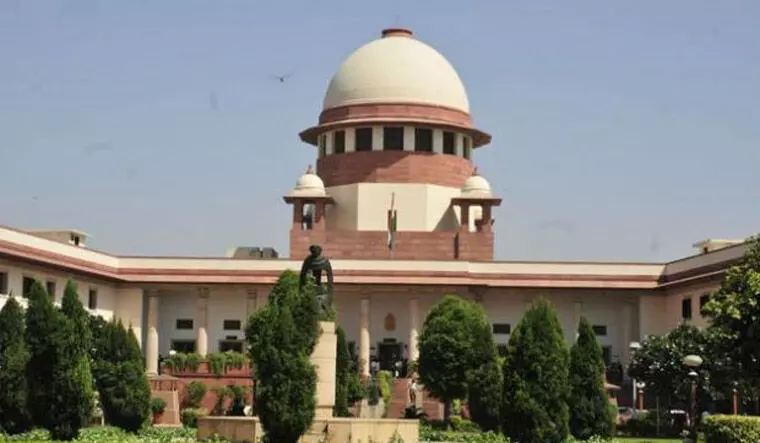
Centre files review petition on SC's Maratha reservation order
text_fieldsSupreme Court of India, Image credit: PTI
New Delhi: The Central government has filed a review petition in the Supreme Court challenging its judgment regarding Maratha reservation delivered on May 5.
"As provided in the Supreme Court Rules, 2013, a review petition for review of the judgment of the Hon'ble Supreme Court has been filed by the Union of India on May 13, 2021" the Social Justice ministry said on Thursday.
The majority judgment came despite the Central government through Attorney General KK Venugopal arguing that the 102nd amendment does not take away States' powers to identify SEBCs.
"By introduction of Articles 366 (26C) and 342A through the 102nd Constitution of India, the President alone, to the exclusion of all other authorities, is empowered to identify SEBCs and include them in a list to be published under Article 342A (1), which shall be deemed to include SEBCs in relation to each state and union territory for the purposes of the Constitution," the top court had held.
Three of the five judges on the bench had held that 102nd Amendment has taken away the power of states to decide on SEBCs and only the President can take a decision in this matter.
However, the other judges have said that state governments can also identify SEBCs and there would be two lists - Central and state - of backward communities, which has been the practice for over six decades.
The top court had ruled that after the insertion of Article 342A in the Constitution through the 102nd Amendment, the Centre is empowered to identify SEBCs and include them in a list to be published under Article 342A (1), specifying SEBCs in relation to each state and Union Territory.
The top court's verdict on May 5 had meant state governments will be restricted from making recommendations to the Centre favouring aspiring backwards.


















